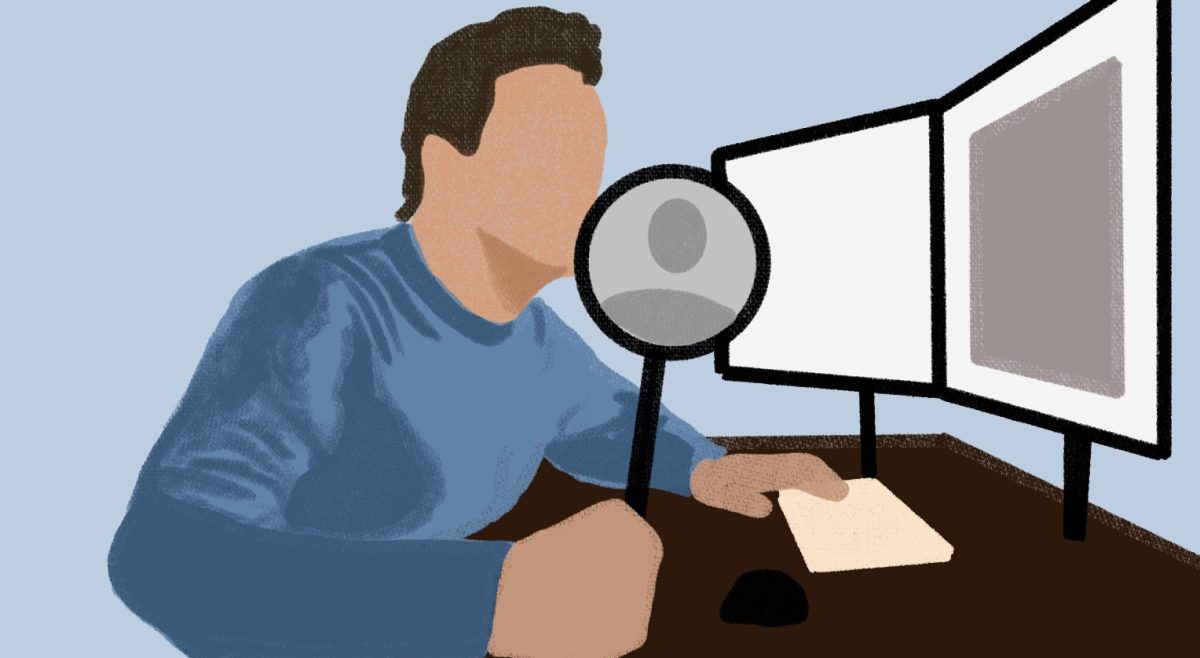
(Connor O'Brien / Heights Editor)
Like many in my generation, I am resistant to hearing about how our phones have ruined our lives. My mother has sent me enough articles about screen time for me to know that my phone is essentially corrupting my brain.
But frankly, there’s not much I can do about it. Pandora’s box has already been opened, and I could not go back to a life without the internet.
Letting go of my phone and the privileges it offers me feels next to impossible. But that does not mean I don’t occasionally wish I could. Lately, I’ve been forced to acknowledge some of the more upsetting ways the internet has affected my brain.
The rise of violence and anger in our society—a development that has been discussed for years—feels like it has finally taken center stage this year. The brutal assassinations of Minnesota lawmaker Melissa Hortman and media personality Charlie Kirk has forced people from all sides to reckon with political violence.
Charlie Kirk’s death feels like a sick sort of mirror for the internet age. Not only was he brutally assassinated, but it was caught on a video that has been replayed over and over.
The first thought that I had after watching that video was that his children would have to live with it. Once they get older, there is no doubt that people will purposefully find ways to make them watch it. It will be referenced, memed, and edited to no end.
That thought is so horrific that I find it genuinely hard to deal with. But what is even harder to think about is the fact that the people engaging in this type of behavior are, in many ways, “normal” people.
When thousands of people are liking and commenting on insensitive things, it becomes harder to separate yourself from them. Can we really say that all of those people are simply mentally ill? There must be something deeper going on.
This goes far beyond Charlie Kirk and your political affiliation. We all need to acknowledge that more and more young people find violence acceptable.
Obviously, there are a variety of factors that are responsible for this. I do think, however, that all of those who spend time on social media need to sit back and think about what they are seeing.
When you are on social media, do you find yourself liking or saying things that you would not say in a real-life conversation?
Are you significantly less shocked by extreme anger online than you would be if it played out in front of you?
It isn’t easy to admit, but I was upset by my answers to these questions, and I don’t think I’m alone in that. I wonder how many people on this campus would actually be willing to say some of the things they have posted on Herrd out loud. Our generation is constantly able to be anonymous, which provides a convenient escape from social consequences.
I believe our brains have been impacted by the ability to say and watch inappropriate things without social marginalization. Most people know that this freedom must stay online, but I think it bleeds into real life. The ability to unleash anger and rage in a forum where no one actually knows you is addictive. People no longer have to manage their own extreme feelings in private. Instead, they can simply go online and let it out.
Many public figures have faced a significantly higher number of threats in the internet era. While I hope that no one I know has ever actually threatened another human being online, I think that everyone is less shocked by this than they should be. The internet is inundated with threats and violence. Many people I know grew up receiving extremely violent videos and content as a joke. We are numbed to violence because of our constant access to it.
I believe this combination of anonymity and access to violence has created a broader acceptance of extreme anger. In the past, acting this way would have led to actual social consequences. Now that it can be done anonymously, people simply dismiss it as an unfortunate reality. The deaths of Mellisa Hortman and Charlie Kirk were horrific, and in a perfect world, tragedies like those would never happen again. It’s high time we acknowledge that the risk of violence has been rising for a very long time, and it isn’t going away.
Our generation is so used to extreme anger that even the death of other human beings are played for laughs. Without reflection on how the internet has shaped the ways we look at and interpret violence, I have serious fears about what the future will bring.